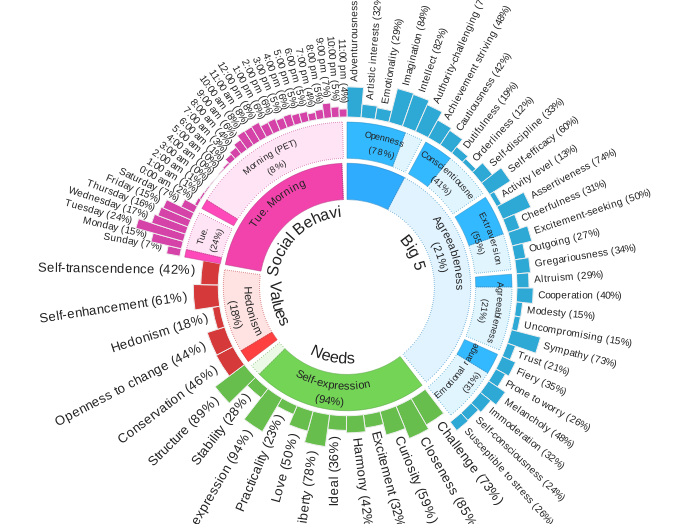Interesting story recently on NPR about Watson, the IBM super computer that won the “Jeopardy” game show. It apparently has now been retooled to analyze texts written by an individual on social media in order to provide insight into personality traits. The assumption is that our choice of words unconsciously reflects who we are. In itself this is nothing new. In the 1990’s James Pennebaker used a computer to analyze individuals’ use of personal pronouns. An abundant use of the first person pronoun, according to Pennebaker is revelatory of someone’s personality and/or state of mind:
If someone uses the pronoun “I,” it’s a sign of self-focus. Say someone asks “What’s the weather outside?” You could answer “It’s hot” or “I think it’s hot.” The “I think” may seem insignificant, but it’s quite meaningful. It shows you’re more focused on yourself. Depressed people use the word “I” much more often than emotionally stable people. People who are lower in status use “I” much more frequently.
According to the NPR story, the Watson program goes well beyond the analysis of pronoun use. It created “personality dictionaries”, correlating words in English to 5 different personality traits, with the acronym of OCEAN: “O for openness, C for conscientiousness, E for extroversion, A for agreeableness and N for neuroticism”. Texts an individual has written on Twitter, Facebook, blog posts and in other online services are collected and parsed. For the story, Facebook posts for the reporter, Aarti Shahani, were analyzed, which she found reflected fairly accurately at least some of her major personality traits. But, as she pointed out in the story, our online identity may be quite different from the identity we have in other contexts. Our behavior and language may differ significantly if we are at home with family, for example, rather than in the workplace. Likewise, our language use online may depend on the medium being used, as well as on the purpose of the communication, and on the particular situation or people we are addressing.
Watson was less accurate in its function as an “emotions analyzer”; it misread the emotions behind some of the statements in letters between Shahani and her ex-boyfriend. You can try out how well your emotions are analyzed using a trial version of the Tone Analyzer available online. A demo version of the writing analysis tool is also available. Given the interest in both big data and social media, it seems likely we will see more such tools, probably as mobile apps. One could well imagine their use in dating services.

